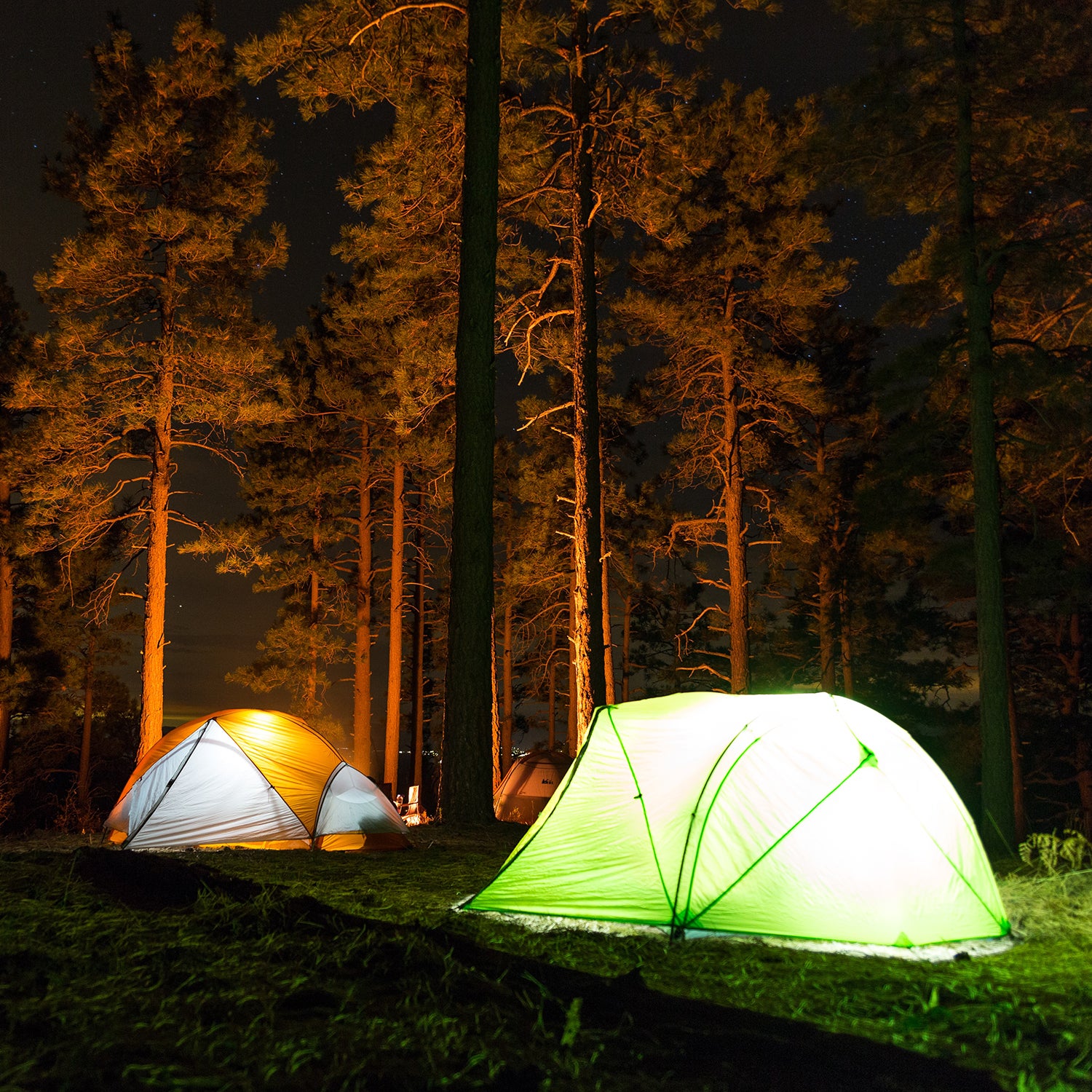Last summer, camper vans and RVs arrived en masse in the town of Mammoth Lakes, California, on the eastern slope of the Sierra Nevada. In the midst of the COVID-19 pandemic, many people were looking to get outdoors. But with campgrounds either closed or fully booked, many of those aspiring campers chose to pitch their tents or park their rigs outside of designated campgrounds, a growing trend known as dispersed camping. The problem was, they didn’t always know where they could legally camp.
“People were going out and parking anywhere,” says Lara Kaylor, communications director for Mammoth Lakes Tourism. “A lot of them were first-time campers, not necessarily aware of the things you’re supposed to do. We saw a lot of trash, as well as human and pet waste. It was disturbing to the community.”
In the U.S., you’re allowed to camp overnight on all public land managed by the (BLM), as well as some U.S. Forest Service land, when permitted. But it’s not always easy to find those spots. Dispersed camping is more prevalent and popular in the western U.S., though there are public lands on the East Coast where it’s allowed, too.
In Mammoth, complaints came in about noise, litter, toilet paper and dog poop left behind, and the risk of wildfire from campfires. So last winter, a coalition of people from federal and land-management agencies, nonprofits, and tourism departments created the , with the goal of helping people camp on public lands responsibly. They added Porta-Potties and dumpsters near popular dispersed-camping zones, put together an , and worked on better signage, volunteer opportunities for cleanup, and stricter enforcement of fire regulations. The efforts appear to be helping.
“We haven’t had as many complaints this summer,” says Kaylor. “These are public lands, and they’re for everyone to explore, but we need to do so responsibly. It’s not a lecture. It’s about preserving these beautiful spaces and not leaving an impact on the environment.”
The joys of sleeping outside of a designated campground are many: solitude, quiet, wild beauty. It’s also easier to find campsite availability at the last minute when you’re not dealing with a reservation system at a state- or national-park campground. But these out-of-the-way spots don’t come with the amenities of a proper campground, like water, toilets, picnic tables, bear boxes, or dumpsters for your trash. If you want to try dispersed camping, here’s what you need to know.
Do Your Research
The fees, regulations, infrastructure, and conditions of dispersed-camping areas vary greatly, so check your local jurisdiction before you pitch a tent on some random dirt road. The BLM typically allows camping for up to 10 to 14 days in one spot. State and national parks typically have much stricter rules when it comes to dispersed camping, so make inquiries beforehand.
“Call the visitor center, look online, and figure out if you need permits, or if there’s any type of infrastructure near you, or if you’re going to be completely dispersed. There’s nobody out there taking care of you,” says Kaylor.
Know What You’re Looking For
Figure out what your needs are before you decide on a place to camp. Maybe you want to camp near a body of water—a lake or a creek—or maybe you need plenty of trees for shade. Perhaps you want to be near a trailhead for hiking or biking, or you need cell service to get some work done or be within reach.
“Sometimes I want to be off-grid, other times I want to be able to do work,” says , an athlete, strategist, and storyteller who spends months each year camping on public lands. “When you know your goals—your recreation goals, your work or connectivity goals, and your basic-human-needs goals, like water or a bathroom—it’s easier to find the right spot.”
Locate a Place to Camp
Now comes the hard part: finding a spot that fits what you’re looking for. Websites like ,��, , and produce maps of dispersed-camping sites. Apps like can provide topographical maps to get you there. (Gaia GPS is owned by the same parent company as �����ԹϺ���, and Gaia GPS Premium is now included with an .)
“Camping should be accessible for everyone. These spots shouldn’t be secret,” says the Dyrt cofounder Kevin Long, who’s in the middle of a yearlong van-camping trip. “Anyone can add a campground or dispersed spot and share it with everyone.”
Be sure to download those maps ahead of time, in case you lose cell service. Some of them allow you to overlay your GPS location onto the map to guarantee you’re still in a legal zone. The rule of thumb is to camp at least 200 feet from any water source and a similar distance from any roads or trails.
Once you’re driving down that dirt road, be patient as you look for a good site. “I’ve turned the process of finding dispersed camping into part of the enjoyment,” says Long. “It may take a while to drive around and find a spot, so get in the mindset that the journey starts the moment you get in the car.”
Leave the Land Untouched
When camping anywhere, but especially in dispersed-camping areas on public lands, it’s critical to follow the principles of . That means disposing of all waste properly, respecting plants and wildlife, following campfire regulations, and minimizing impact.
“When we are dispersed camping, we are accepting our place as stewards of the land,” says Reyes-Acosta. “It’s less about getting away from other people and more about being in touch with the experience of the outdoors. The best way to do that is being responsible.”
Don’t know what to do with human waste? Consider a camp toilet or pack wag bags. (For more on that, check out �����ԹϺ���’s guide to pooping almost anywhere.) The same goes for your dog’s waste: pick it up and pack it out.
Find out whether you’re allowed to have a campfire before you strike a match. Due to wildfire risk, many public lands have hard restrictions on campfires during the dry summer months. If you can have a fire, make sure you’re following guidelines on how to put out your campfire properly. Better yet, just skip the fire and use solar lights or lanterns instead.
“I’ve found that I can have an equal or better experience without a fire,” says Reyes-Acosta. “You can see the stars better, and there’s something about being under this big night sky and gazing up and remembering why we’re here and what we’re doing with our friends in these beautiful, natural spaces.”


